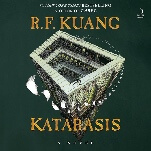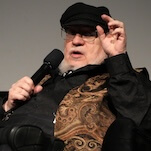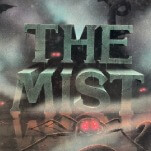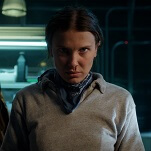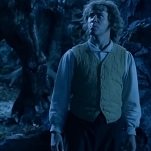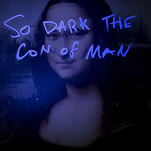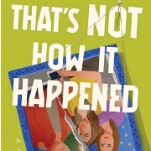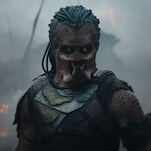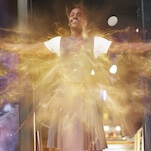Here's the premise for One Missed Call, the latest from prolific J-horror master Takashi Miike (Audition): A young woman receives a mysterious cell-phone message that portends her own horrifying death, which she can do nothing to avoid. Soon enough, such messages become an epidemic, while each following the same inextricable pattern of supernatural terror. Sound familiar? Just replace the words "cell phone" with "videotape," and the plot is basically The Ring/Ringu redux, in a connection not unlike the one between 2004's Cellular and 2002's Phone Booth. Ringu knockoffs are common in a J-horror industry that seems to be cannibalizing itself, but Miike has always been more of an innovator than an imitator, and he normally pushes genre filmmaking to more outrageous extremes. For the first reel or so, Miike seems depressingly resigned to adding another to the scrap heap of rote, mainstream "ghost in the machine" thrillers. But not to worry: He has a few tricks up his sleeve.
The turning point comes in a gruesome piece of black comedy. After the second victim receives a message from the future that plays back the moment before she's going to die, she's thrown off an overpass and onto a moving train, which decapitates her. Continuing the cycle, the next diabolical call is placed… by her severed arm! From there, Miike ups the ante with a bizarre macabre twist on Network: Once word leaks to the press about this pattern of scheduled murders, a TV show hijacks the next potential victim for a prime-time special, complete with grinning commentators, a weird psychic, and a countdown to her demise. As her companions die off one by one, Kou Shibasaki and the first victim's brother (Shin'ichi Tsutsumi) try to figure out the identity of this vengeful ghost and what they can do to stop it.
At a certain point, Miike drops the inspired black comedy and starts playing by the rules, reducing the angry-ghost mystery to a lesson in child psychology (this may be the first horror movie about Munchausen by proxy), and staging the climax in a spooky old abandoned hospital. The problem with Miike making six movies a year pace is that sometimes he gets lazy, and One Missed Call occasionally falls slack or resorts to the paint-by-numbers J-horror tropes that he usually transcends with his crazed Grand Guignol theatrics. Miike doesn't do enough to shake up the formula, but he's still expert at delivering shocks, and when the level of craftsmanship is as high as it is in the white-knuckle finale, originality doesn't seem to matter anymore.



